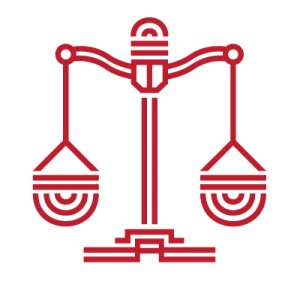Best Job Discrimination Lawyers in Midrand
Share your needs with us, get contacted by law firms.
Free. Takes 2 min.
List of the best lawyers in Midrand, South Africa
About Job Discrimination Law in Midrand, South Africa
Job discrimination occurs when an employer treats an employee or job applicant unfairly based on characteristics such as race, gender, age, disability, religion, or any other prohibited basis. In Midrand, South Africa, job discrimination is not only considered unethical but also illegal under both national and provincial law. The goal is to ensure that everyone has equal access to job opportunities and is treated fairly at work, regardless of background or personal traits. The law covers all stages of employment, including hiring, promotions, salaries, job assignments, training, termination, and the work environment.
Why You May Need a Lawyer
There are several situations where individuals experiencing job discrimination in Midrand may benefit from legal counsel. These situations include:
- Facing unfair treatment or harassment at work due to race, gender, disability, or any protected characteristic
- Being denied employment or promotion for discriminatory reasons
- Receiving lower compensation than colleagues with similar qualifications and experience
- Experiencing retaliation from your employer after reporting discrimination or supporting someone else’s complaint
- Not receiving reasonable accommodations for a disability or religious practice
- Being wrongfully dismissed or forced to resign following discriminatory actions
A qualified lawyer can help you understand your rights, gather evidence, assess the merits of your case, guide you through legal procedures, and represent you in negotiations or litigation.
Local Laws Overview
South Africa has robust legal protections against job discrimination, most notably through the Employment Equity Act and the Labour Relations Act. These laws apply in Midrand and throughout the country. They prohibit discrimination based on race, gender, sex, pregnancy, marital status, family responsibility, ethnic or social origin, colour, sexual orientation, age, disability, religion, HIV status, conscience, belief, political opinion, culture, language, and birth.
Employers are required to promote equal opportunity and fair treatment in employment through the elimination of unfair discrimination. The legislation places specific obligations on employers to take positive steps towards equity, particularly for previously disadvantaged groups. The Commission for Conciliation, Mediation and Arbitration (CCMA) is an important statutory body that helps resolve workplace disputes, including claims of discrimination.
Frequently Asked Questions
What counts as job discrimination in Midrand?
Job discrimination is any unfair treatment in hiring, promotion, job assignment, salary, benefits, or other aspects of employment based on protected characteristics such as race, age, gender, disability, or religion.
Do discrimination laws apply to small businesses?
Yes, discrimination laws apply to most employers operating in Midrand, regardless of their size. However, some obligations under the Employment Equity Act are more extensive for larger employers.
Can I be punished for reporting discrimination at work?
No, it is illegal for an employer to retaliate against you for reporting suspected discrimination or for supporting another worker’s complaint.
What should I do if I think I am being discriminated against?
Document your experiences, keep records of relevant communications, and consider discussing the issue with your employer or HR department. If the matter is not resolved internally, you may seek help from the CCMA or consult a lawyer.
How long do I have to file a discrimination claim?
In most cases, discrimination complaints must be referred to the CCMA within six months of the alleged discriminatory act. Acting promptly is important.
What proof do I need to make a discrimination case?
You will need evidence showing you were treated unfairly based on a protected characteristic. This may include emails, witness statements, comparative treatment details, or company policies.
Can I settle a discrimination dispute out of court?
Yes, many disputes are resolved through conciliation or mediation, often facilitated by the CCMA. Settlement agreements are legally binding.
Are there any exceptions where different treatment is allowed?
In some cases, different treatment may be justified if it is a genuine requirement of the job, for example, specific physical abilities or language needs, provided it is fair and reasonable.
Am I protected if I am on a fixed term or temporary contract?
Yes, all employees, including those on temporary or fixed term contracts, are protected from discrimination by law.
What remedies are available if I win a discrimination case?
Remedies may include reinstatement, compensation for lost wages and emotional distress, changes to workplace policies, and actions to prevent future discrimination.
Additional Resources
If you need more information or assistance regarding job discrimination in Midrand, consider reaching out to:
- Commission for Conciliation, Mediation and Arbitration (CCMA)
- South African Human Rights Commission
- Department of Employment and Labour
- Legal Aid South Africa
- Labour Court of South Africa
- Non-profit organizations and advocacy groups supporting workers' rights
Next Steps
If you believe you have experienced job discrimination in Midrand, it is important to act swiftly. Start by gathering all relevant documentation and evidence. Consider addressing the issue through your company’s internal grievance procedures. If the issue remains unresolved, contact the CCMA or a specialized lawyer to discuss your case. Legal professionals can help you assess the strength of your claim, explain your options, and guide you through the process, whether it involves conciliation, mediation, or litigation. Remember, seeking legal advice early can help protect your rights and improve your chances of a successful outcome.
Lawzana helps you find the best lawyers and law firms in Midrand through a curated and pre-screened list of qualified legal professionals. Our platform offers rankings and detailed profiles of attorneys and law firms, allowing you to compare based on practice areas, including Job Discrimination, experience, and client feedback.
Each profile includes a description of the firm's areas of practice, client reviews, team members and partners, year of establishment, spoken languages, office locations, contact information, social media presence, and any published articles or resources. Most firms on our platform speak English and are experienced in both local and international legal matters.
Get a quote from top-rated law firms in Midrand, South Africa — quickly, securely, and without unnecessary hassle.
Disclaimer:
The information provided on this page is for general informational purposes only and does not constitute legal advice. While we strive to ensure the accuracy and relevance of the content, legal information may change over time, and interpretations of the law can vary. You should always consult with a qualified legal professional for advice specific to your situation.
We disclaim all liability for actions taken or not taken based on the content of this page. If you believe any information is incorrect or outdated, please contact us, and we will review and update it where appropriate.











